A smart meter is a next-generation digital device that automatically tracks your electricity or gas usage in real time—no more estimated bills or manual readings. But beyond the tech, the real question is: does it help you save money? In this article, we’ll break down what smart meters do, how they work, and whether switching to one can make a real difference in your energy costs.
What Does a Smart Meter Do and Can It Help You Save Costs? The Smart Way to Manage Your Energy
Introduction: Understanding Smart Meters in Today’s Energy Landscape
Since energy is getting more expensive and everyone is focused on the environment, homeowners and businesses are finding new techniques to manage their energy smartly. Smart meters are changing the way we keep an eye on, understand, and regulate our energy use. What exactly does a smart meter do, and is it really useful for lowering your energy costs?
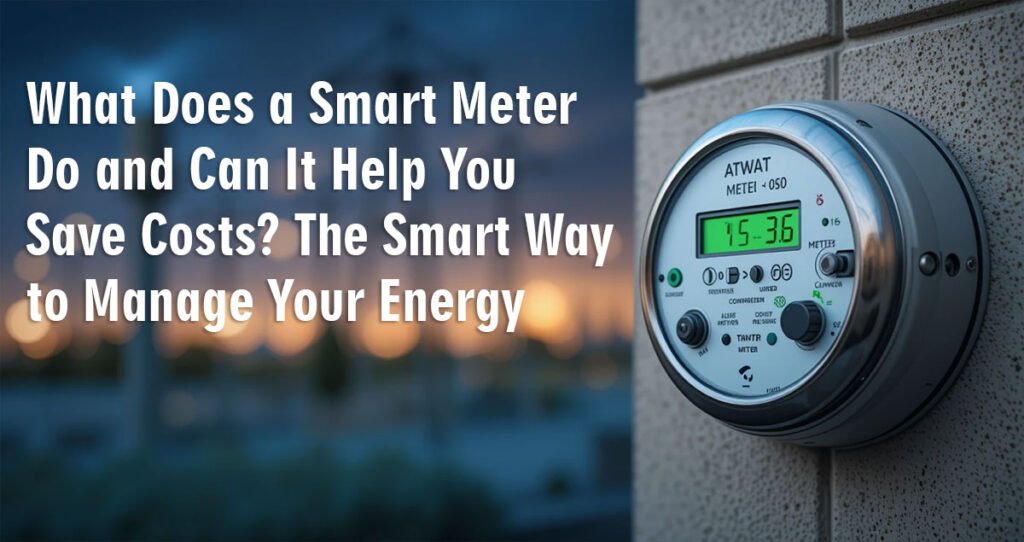
A smart meter measures your electricity and gas use every moment and sends the data to your supplier automatically. While traditional meters must be read by hand and lead to estimates, smart meters send your actual usage data, so you know exactly how much energy you’re using. The in-home display (IHD) helps users understand how much energy they are consuming in both pounds and pence, so they can make smart decisions all day long.
Besides being convenient, there are other important advantages to smart meters. They give us a new understanding of energy use, remove needless estimates from billing, allow for remote meter checks, and lay the groundwork for better energy control. Smart meters are seen by CenterPoint Energy as an important part of updating the grid and contributing to greener energy.
In this guide, we will cover everything about smart meters, including their operation, what you gain from them, possible concerns, and real savings you can make. If you’re thinking about a smart meter or already own one, this article will advise you on using it to pay less for energy and help protect the environment.
How Smart Meters Work: The Technology Behind Energy Monitoring
Smart meters give us updated technology, allowing us to connect better with our energy systems. These smart tools track your electricity and gas use with great accuracy, logging data every half hour and sending it straight to your energy provider.
The Basic Components of a Smart Meter System
A complete smart meter setup consists of several key components:
- The Smart Meter Device: The smart meter is what you put in place of your old analog meter. This device includes modern tools for tracking your energy use with a greater level of accuracy than older ones.
- In-Home Display (IHD): Wirelessly paired with your smart meter, this screen instantly shows your current energy consumption. Since both energy and cost are shown, you can easily figure out how much money you’re spending.
- Communications Hub: You can now safely share your energy use data from the smart meter with your energy company using supported networks.
- Smart Energy Network: The network that allows consumers and energy providers to exchange data, making it simple to manage and get energy to every user.
Two-Way Communication System
Smart meters, unlike ordinary meters, communicate information about energy usage back and forth between users and energy companies. This bidirectional flow of information offers several advantages:
- Real-Time Data Access: Energy companies receive accurate consumption data without sending technicians for manual readings.
- Dynamic Rate Implementation: Offering time-of-use options can encourage household energy use to match the real electricity demand on the grid.
- Remote Operations: Connection, disconnection, and meter diagnostics can all be done remotely.
- Outage Detection: Smart meters can instantly tell utilities about power outages, which helps restore service more quickly.
Data Collection and Transmission
Smart meters collect how much energy you are using and send it safely to your energy company. Almost all commercial wireless chargers use encryption to make their wireless connections secure. With this data collection, you won’t receive estimated energy bills; you pay exactly for what you consume.
CenterPoint Energy uses this technology for more efficient grid operation and to provide better customer support. Thanks to smart meters, approximately 2.3 million in Houston, CenterPoint can watch system performance, lessen the chance of blackouts, and reduce outage times.
Smart meters working with new energy management systems play a key role in how smart homes develop. Because home automation and energy saving are improving, smart meters ensure we have the key data needed for intelligent energy use.
Benefits of Smart Meters: Why They’re Changing the Energy Game
Unlike traditional analog meters, smart meters provide a wide range of useful advantages. All three—consumers, energy suppliers, and the environment—benefit from these developments, so they are useful for everybody. Let’s look at how smart meters are helping change the energy field.
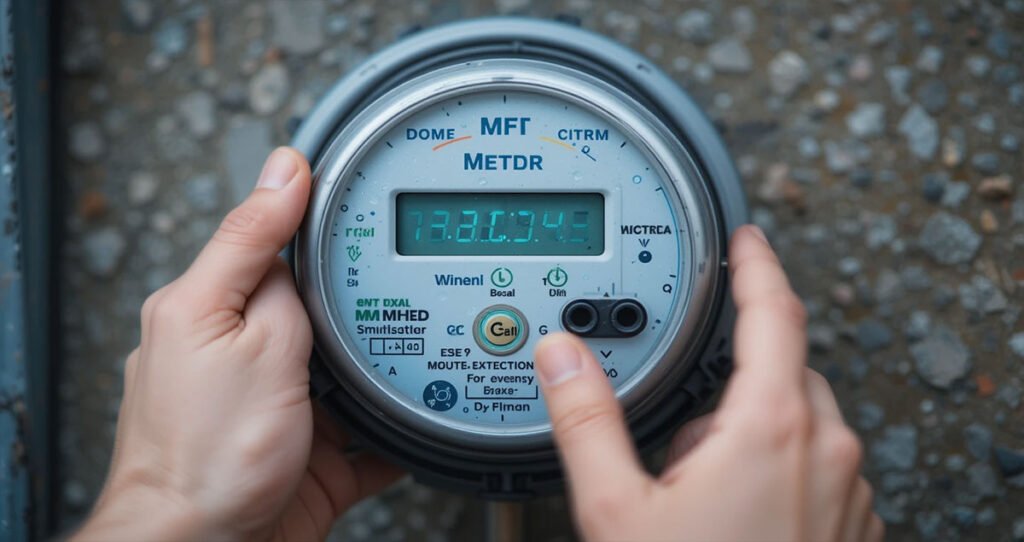
For Consumers: Enhanced Control and Cost Savings
- Accurate Billing: Smart meters end estimated bills because your meter reports your actual usage to your energy company.
- Real-Time Consumption Awareness: Since the in-home display reports your energy use in real time, you can easily recognize big consumers and choose to use less energy.
- Detailed Usage Patterns: By showing you when you use energy, smart meters suggest places where you can cut down on your energy bills.
- Money-Saving Insights: Thanks to detailed usage data, you can figure out the best time to run appliances or alter your heating/cooling to spend less.
- Simplified Switching: Changing your energy supplier is made easier with smart meters, which provide an accurate history of your energy use.
- Remote Monitoring: A number of smart meters have apps or websites that make tracking your energy consumption possible when you’re out of the house.
For Energy Providers: Operational Efficiency
- Automated Meter Reading: Knows how to read sensors and obviates the risk of error in manual checks.
- Improved Grid Management: Being able to process data as it is generated means utilities can better address variations in supply and demand.
- Faster Outage Detection: With smart meters, it takes providers less time to find out about an outage and respond.
- Remote Connection/Disconnection: Activating or deactivating services is possible from a location outside the property.
- Data-Driven Planning: Complete demand data makes it easier for utilities to carefully plan new energy projects.
For the Environment: Supporting Sustainability
- Reduced Energy Waste: If we understand environmental issues more fully, we are likely to make better decisions about what we buy.
- Lower Carbon Footprint: Reduced power use leads to a positive climate change.
- Support for Renewable Integration: Renewable energy sources can be incorporated into the power grid more easily because smart meters provide important data.
- Demand Response Programs: Join programs that help your community use less electricity during periods when power is most needed.
Smart Energy GB reports that 86% of people with smart meters changed their actions to reduce their energy use after installation. Even more interesting, these improvements often rise with time instead of decreasing. Among newly installed smart meter owners, just over a third chose energy-efficient light bulbs shortly thereafter, but two years after their smart meter, this share increased to more than two in three.
CenterPoint Energy’s smart meter program exemplifies these benefits in action. Their implementation has not only automated meter reading and service connections but also given consumers detailed information about their electricity use. The resulting Intelligent Grid is designed to monitor grid health, reduce power outages, and shorten service disruptions, creating a more resilient energy system for all users.
Do Smart Meters Save You Money? The Evidence
Whether smart meters can save consumers money is at the heart of why they are valuable. In itself, a smart meter does not directly slash your bills; it’s the actions you take as a result that help you save money. Let’s examine the available proof:
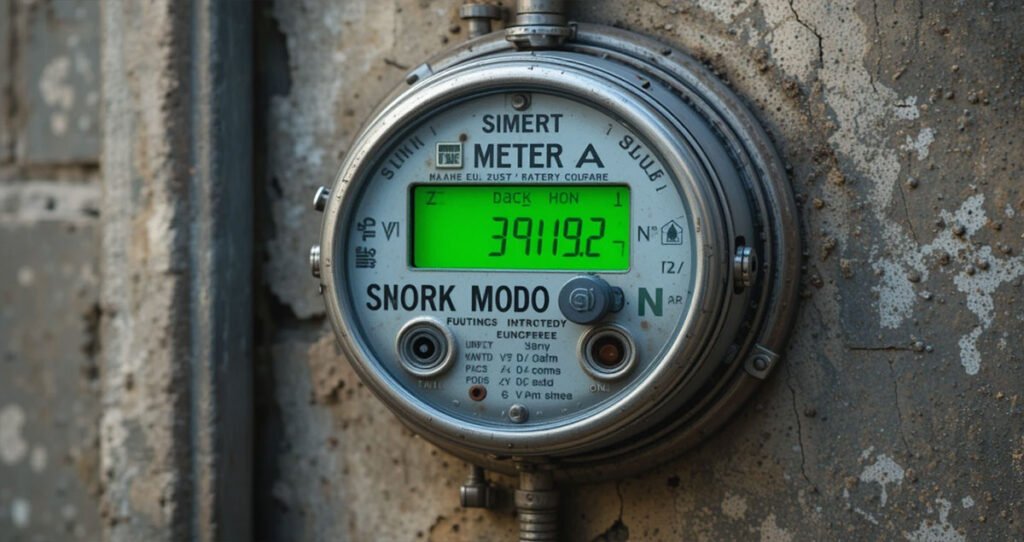
Research-Backed Savings Statistics
Multiple studies have investigated the financial impact of smart meter installations:
- After looking at major energy companies’ evidence, the Behavioral Insights Team discovered that across the board, smart meters led to savings of about 3.4% on electricity use and 3.0% on gas usage.
- MIT Sloan discovered that between 2007 and 2017, U.S. electric companies using smart meters raised their revenue by 1-2%, while electricity loss dropped by an average of 4% after being installed.
- It’s been found by Smart Energy GB that smart meters become even more beneficial as users learn how to use less energy and get used to having them.
- A journal article published in 2024 indicates that smart meters lowered energy usage in study houses by around 15% and also reduced peak energy consumption by 10%.
Real-World Savings Mechanisms
Smart meters facilitate savings through several practical channels:
- Identifying Energy Waste: Because smart meters reveal live energy use, users learn what gadgets or habits are taking up excessive energy. Noticing a big increase in your energy consumption right after you turn on a device could mean that the equipment is not efficient and needs to be replaced.
- Shifting Usage to Off-Peak Hours: Many companies that provide energy do so at a lower rate when demand isn’t high. Thanks to smart meters, people are able to tell when the cheapest time of day occurs and choose those times to use their energy-consuming appliances.
- Behavior Modification: Because in-home displays deliver quick feedback, customers can relate what they do at home to their energy use. Users who watch their energy use rise on the screen as they run appliances are more likely to be mindful about energy usage.
- Accurate Billing: With only estimated readings, consumers lessen the chance of being billed for too much energy.
Case Studies: CenterPoint Energy’s Smart Meter Program
Using smart meters in the way CenterPoint Energy has described, consumers can benefit. Thanks to their program, users obtain timely data that can lead to decisions that cut electricity costs and help their homes use energy wisely.
Features of their program include:
- Hourly Usage Tracking: Helps pinpoint peak energy use times.
- Daily Consumption Graphs: Aids in detecting unusual spikes
- Custom Alerts: Notifies users of high usage patterns
- Energy Comparison Tools: Allows benchmarking against previous months
One Houston homeowner reported a 20% reduction in energy bills simply by adjusting air conditioning use during peak times after installing a CenterPoint Energy smart meter. Likewise, small companies have cut down on their expenses by using technology to power off equipment when the office is closed.
The data supports the idea that active use of what smart meters reveal lowers energy costs, regardless of any household’s features or habits.
Smart Meters vs. Traditional Meters: What’s the Difference?
Advances in energy monitoring technology were made when traditional analog meters were replaced with smart meters. Awareness of these differences allows people to see why smart meters are important for handling modern energy needs.
Design and Functionality Comparison
- Traditional Analog Meters
- Feature mechanical dials or rolling counters
- Require physical, visual reading by utility personnel
- Only record the total cumulative energy consumption
- Typically read once per month or billing cycle
- Provide no real-time feedback to consumers
- Support one-way communication (data collection only)
- Smart Meters
- Feature digital displays with electronic components
- Automatically transmit readings to utility providers
- Make sure to collect detailed information on consumption every thirty minutes
- Enable continuous monitoring and instant access to usage information
- Provide real-time feedback through in-home displays
- Support two-way communication between consumers and utilities
Billing Accuracy and Transparency
It is frequently the case that, if meter readers can’t access your home or readings are held up, they will use estimated billing these days. Sometimes, these estimates lead to differences between what a consumer uses and what they are charged, and these changes can be confusing.
Instead of using estimations, smart meters make sure energy suppliers get real, prompt readings. Therefore, bills are accurate, which makes budgeting easier and more open for everyone in the household. Because of CenterPoint Energy’s smart meters, customers no longer often receive estimates and can see their energy costs.
Energy Usage Visibility
Perhaps the most striking difference lies in the visibility of energy consumption:
- Traditional Meters: Offer limited transparency, with consumption data only visible through monthly bills that arrive after the fact, making it difficult to connect specific behaviors with energy costs.
- Smart Meters: Provide immediate feedback through in-home displays, showing:
- Current usage rates in kilowatt-hours and monetary terms
- Historical consumption patterns by day, week, or month
- Real-time cost accumulation
- Comparative usage data against previous periods
Because energy is more visible, consumers now engage with it differently. Smart meter users can check their usage at any time and see how quickly it climbs when they power on the air conditioner, run appliances, or keep the lights on in rooms that have no one in them.
Grid Integration and Future Capability
Traditionally, meters are just used to record energy, not for managing or shaping the larger energy system. In other words, smart meters are a key part of the smart grid—a new system for electricity that uses advanced technology to move electricity safely from different sources to where it is needed.
This is shown by CenterPoint Energy hooking up 2.3 million smart meters to its Intelligent Grid. It gives customers more perks, helps the grid operate smoothly, helps respond to outages quickly, and improves how renewables are connected to the grid—things traditional meters fail to do.
How to Maximize Savings with Your Smart Meter
Reducing your energy bills starts with getting a smart meter installed. You can only make the most of the technology by taking the information it offers and using it to improve your energy consumption. Here’s a guide to getting the most out of your savings:
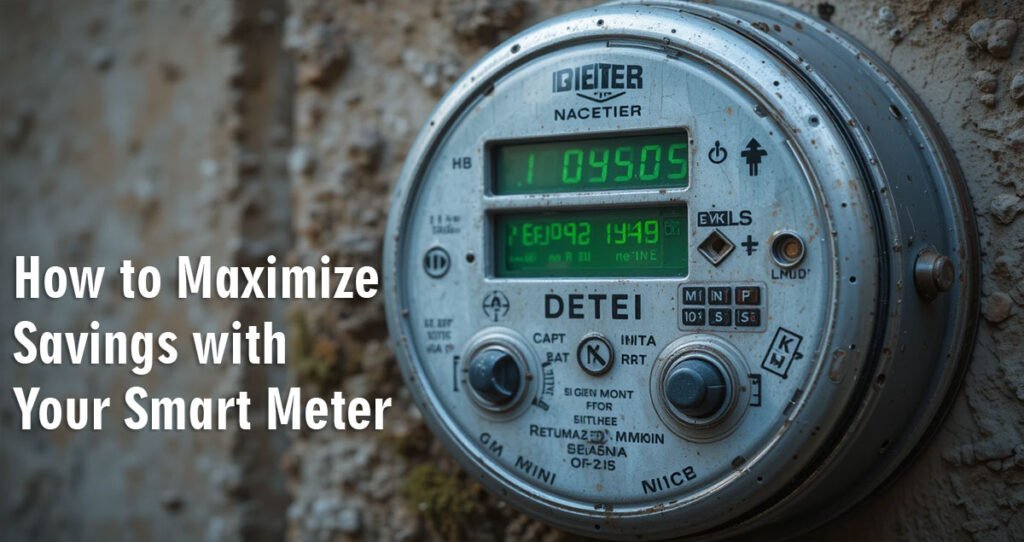
Understanding Your In-Home Display
Many customers fail to take advantage of the in-home display, which tells you your energy use in real time.
- Learn to interpret the data: Study how power use is shown in both kilowatt-hours and in dollars or cents on your display.
- Track usage patterns: Note which times of day show the highest consumption and correlate these with your household activities.
- Set budgets: A lot of IHDs let you decide your budget for the day or week and remind you when you’re getting close to spending it all.
- Compare periods: Examine your data from the past to spot any changes in how your campaign is being used.
Strategic Energy Usage Adjustments
Armed with insights from your smart meter, consider implementing these energy-saving strategies:
- Shift high-consumption activities to off-peak hours:
- Run dishwashers, washing machines, and dryers during nights or weekends when rates may be lower
- Charge electric vehicles during off-peak periods
- Make sure your home is either cooled or heated before the costly time for energy starts.
- Identify and address energy vampires:
- Use your IHD to detect which devices consume electricity even when “off”
- Install smart power strips that completely cut power to devices when not in use
- Unplug chargers and electronics when not needed
- Optimize heating and cooling:
- Use your smart meter data to determine the energy impact of temperature adjustments
- You might want to use programmable thermostats that can manage themselves by day and night
- Identify and seal drafts or insulation issues that may be revealed through unusual energy patterns
- Lighting and appliance efficiency:
- Track the energy consumption difference when switching to LED bulbs
- Identify which appliances consume the most energy and prioritize efficient usage or replacement
Leveraging Utility Programs and Features
Many energy providers offer additional programs to help smart meter customers maximize savings:
- Time-of-use rate plans: Opt into plans that offer lower rates during off-peak hours if your usage patterns allow flexibility.
- Demand response programs: A few utilities provide benefits for lowering your energy use during peak usage days or hours. CenterPoint Energy’s Smart Cycle program is one example, paying customers to participate in peak-load management.
- Energy efficiency rebates: See if your energy company gives money back for purchasing or installing efficient appliances or improving your home.
- Online portals and apps: Many utilities provide digital tools that offer deeper insights than the basic IHD, including appliance-level consumption analysis.
Real-World Success Stories
Consider these examples of successful energy management with smart meters:
- A family in Houston, using CenterPoint Energy’s smart meter program, reduced their summer cooling costs by 15% by pre-cooling their home in the morning and allowing the temperature to gradually rise during peak rate hours.
- After learning from their smart meter, a small business owner managed to avoid $2,000 in yearly electricity bills because less energy was being used by left-on computers.
- Smart Energy GB reported that a household involved in their study cut its annual energy cost by around 10% by finding and changing inefficient machines and rescheduling heavy-energy activities to lower-demand hours.
Using the information from your smart meter, making purposeful adjustments in energy use, and learning new conservation habits, you could cut your energy use by much more than the usual 3-5%.
Addressing Concerns: Smart Meter Myths and Facts
Smart meters have been met with both doubt and common misunderstandings, much like any new technology. Some regular questions about evidence-based information should help you decide:
Privacy and Data Security
- Myth: Data from smart meters is often used by utilities to spy on how people use their electricity and is sold.
- Fact: Smart meters capture how much energy you use, but not what you do in your house. The privacy of such data is strictly controlled by strict regulations that regulate its use. Mainly, utilities rely on this info for handling billing and managing the grid. Just as with online banking, all the data is encrypted as it is transferred. According to the Department of Energy, smart meter data receives the same privacy protections as other utility information.
Health Concerns
- Myth: Smart meters release harmful radiation that can harm individuals.
- Fact: Smart meters use low-power radio frequency (RF) signals to transmit data, similar to cell phones and Wi-Fi routers. Still, they stay on the air just for short periods each day, no more than 15 minutes at a time. According to the FCC, RF devices have exposure limits set, and all smart meters function well within them. Many research studies, for example, those by the World Health Organization, conclude that properly operating smart meters are safe and do not create any health issues.
Cost and Installation Concerns
- Myth: Smart meters are not cheap to set up, with the costs going right to the consumers.
- Fact: Installation costs for smart meter systems usually level out in the form of savings on routine operations. In many regions, installation costs are spread across the rate base or covered by efficiency programs. Overall, what companies get in savings, more efficient outage management, and energy savings is far greater than the upfront costs. In the case of CenterPoint Energy, major improvements in how meters are operated have proven beneficial to all customers.
Billing Accuracy
- Myth: Smart meters often malfunction and lead to higher bills.
- Fact: With smart meters, estimated readings for your energy usage are no longer included in your bills. It’s often the case that your bills go up after a smart meter gets installed because your previous meter failed to record every unit you used. Smart meters are checked for accuracy both when they are installed and as they operate. A study by the Behavioral Insights Team found no evidence of systematic over-billing with smart meters—in fact, their research confirmed average energy savings of 3.0-3.4% following smart meter installation.
Control and Choice
- Myth: Power companies can manage your house through your smart meter and turn off your power outside your home if needed.
- Fact: Typically, smart meters minus energy use and communicate information, but they don’t manage individual appliances. While some optional demand response programs may involve appliance control (with explicit consumer consent), basic smart meter functionality doesn’t include this capability. Remote disconnection capabilities exist primarily to improve efficiency when service changes are requested by customers, such as when moving to a new residence.
Technical Issues
- Myth: Smart meters frequently malfunction or lose connection.
- Fact: While early deployments experienced some technical challenges, modern smart meters are highly reliable. CenterPoint Energy reports that its smart meter network maintains over 99% connectivity rates. In rare cases where communication issues occur, the meters continue to record usage locally, ensuring billing continuity. Many utilities have effective systems in place to catch and solve technical issues soon after they are seen.
Once the facts about smart meters are understood, people can choose the best energy management solution, take advantage of the benefits, and save money.
Smart Meters and the Future of Energy Management
Smart meters do much more than improve technology in our power infrastructure; they help lead to a smarter, more efficient, and more sustainable energy system. Going forward, these gadgets will be important in changing the ways we produce, distribute, and use energy.
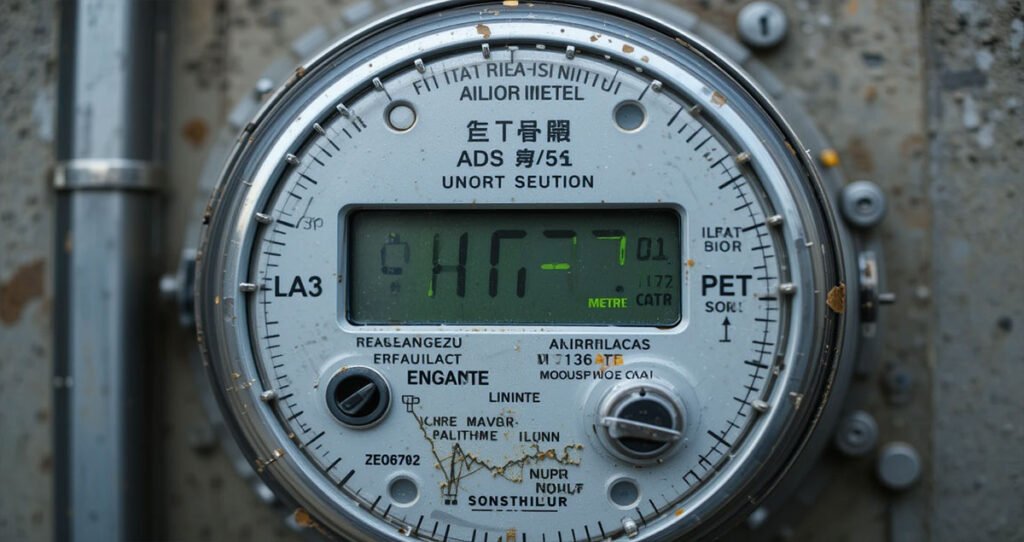
Integration with Smart Home Systems
Mobile technology is already working with smart meters in homes, and the combination will increase and improve in the years ahead.
- Appliance Coordination: Energy-heavy appliances will be set on power-saving hours in the future, chosen automatically by smart meters.
- Predictive Energy Management: A combination of smart meter data, weather information, and household patterns will be analyzed by AIs to cut energy costs, mainly without needing constant human support.
- Comprehensive Energy Dashboards: Unified interfaces will integrate smart meter data with solar production, battery storage levels, and appliance-specific consumption to provide complete home energy visibility.
CenterPoint Energy and similar forward-thinking utilities are developing platforms that will enable these integrations, allowing consumers to automate energy savings based on their preferences and priorities.
Enabling Renewable Energy Integration
Renewable energy can be used widely because of smart meters.
- Prosumer Revolution: More solar panels being added to homes allow smart meters to record both electricity used and electricity sent back to the grid.
- Dynamic Pricing Models: Time-variable electricity rates, made possible by smart meters, encourage consumption when renewable generation is abundant and discourage use during high-carbon production periods.
- Local Energy Communities: Smart meters facilitate neighborhood-level energy sharing, allowing surplus solar production from one home to power another before drawing from the main grid.
Grid Modernization and Resilience
Information from smart meters is reshaping the way utilities maintain and run the highly complex power grid.
- Predictive Maintenance: By using usage patterns and voltage information, we can locate and repair equipment before it fails.
- Microgrid Development: Smart meters help cities build community microgrids so these can keep operating during blackouts, making the whole system more reliable.
- Load Balancing: Live data on electricity use helps match power generation to the demand, saving energy and keeping the grid more reliable.
Using their Intelligent Grid project, CenterPoint Energy uses smart meters to both check the system and respond quickly when disruptions happen.
Policy and Regulatory Evolution
As smart meter adoption continues to grow, we can expect policy frameworks to evolve:
- Carbon-Based Pricing: Smart meters could allow us to charge electricity differently if it’s generated using more or less carbon at different times.
- Energy Efficiency Incentives: Those who cut energy spending could receive bigger rebates or other benefits contributed by governments, based on evidence from smart meters.
- Data Accessibility Standards: Likely, rules will develop so that people can take advantage of their energy data without compromising privacy.
The Road to Net Zero
Perhaps most importantly, smart meters provide a critical foundation for achieving ambitious carbon reduction goals:
- Electrification Tracking: As more systems switch from fossil fuels to electricity (heating, cooking, transportation), smart meters will help manage increased electrical demand.
- Behavior Change Measurement: The impact of energy conservation campaigns and interventions can be precisely measured through smart meter data.
- Energy Justice: With smart meters, it becomes clear who among our customers might be eligible for energy efficiency assistance..
These meters allow people and companies in the energy sector to work in harmony to support the environment. Next-generation meters keep getting better, so smart meters installed today will keep improving how our energy systems operate for many years.
Conclusion: Are Smart Meters Worth It?
With the technology, benefits, and risks of smart meters clear, we can finally decide: Are smart meters worth having, and can they save you money?
Smart meters seem to offer valuable advantages to most consumers. Generally, when smart meters are installed, families save energy by about 3-5%, but those who use their meter data can often save 10-15% or more. It’s the changes in behavior made possible by the technology, not the tech itself, that help us save energy.
Beyond direct financial savings, smart meters offer numerous other advantages:
- Accurate billing: that eliminates estimates and surprises
- Convenience: through automated readings and remote service capabilities
- Environmental benefits: from reduced energy waste and support for renewable integration
- Future-readiness: as energy systems continue to evolve toward greater efficiency and sustainability
The city of Houston has given Smart Meters to customers through CenterPoint Energy. They serve to reduce utility bills and make the grid modern. Smart meter data supports their Intelligent Grid, which makes service more reliable, makes work easier for utilities, and lets customers see their energy consumption in detail.
The most compelling evidence for smart meter value comes from long-term adoption patterns. Research from Smart Energy GB found that families see more benefits from a smart meter the longer they use it, because they become better at saving energy.
Though everyone’s personal experience may be different depending on their energy routines, family size, and interest in the given information, multiple research workers believe smart meters are beneficial for our energy future. Most people see smart meters as helpful because they can reduce costs, increase service, and help the environment.
As energy systems get smarter and more efficient, managing electricity and gas will depend more on smart meters. Using this technology now allows people to save money and stay ahead when the energy landscape changes.










